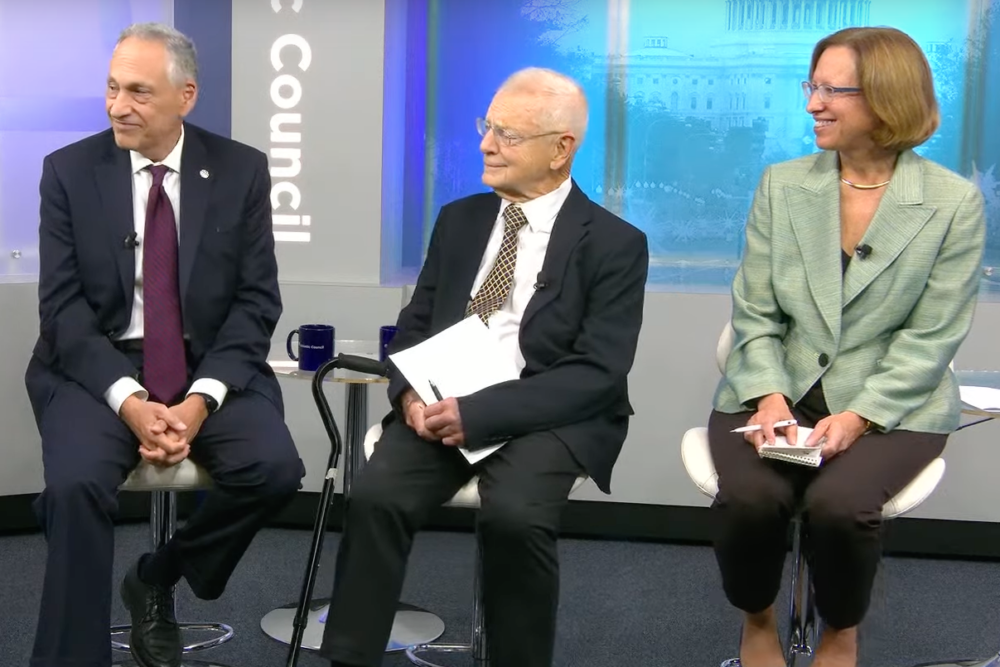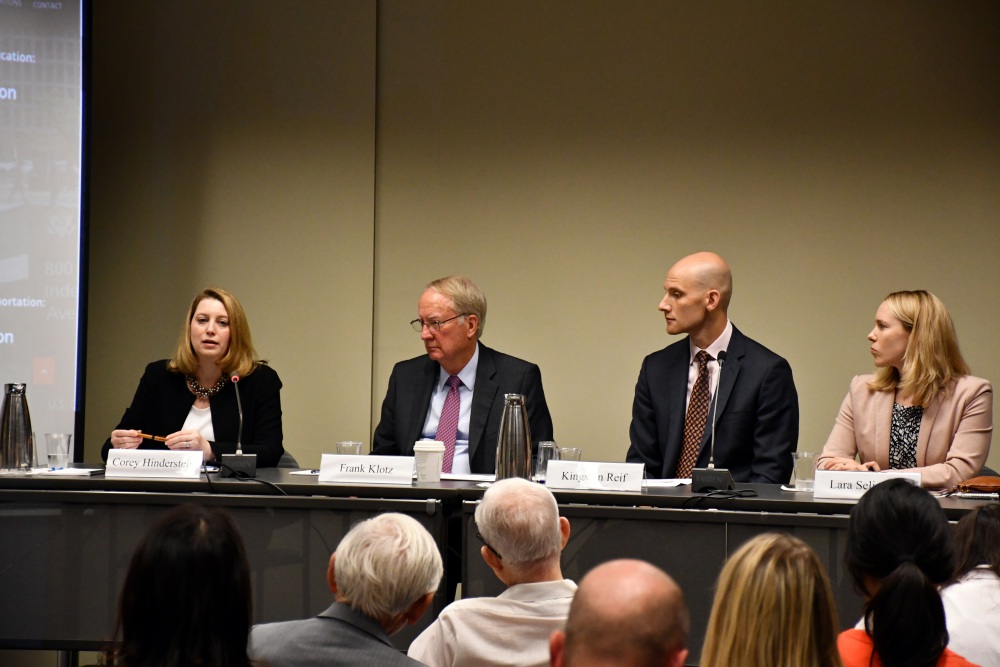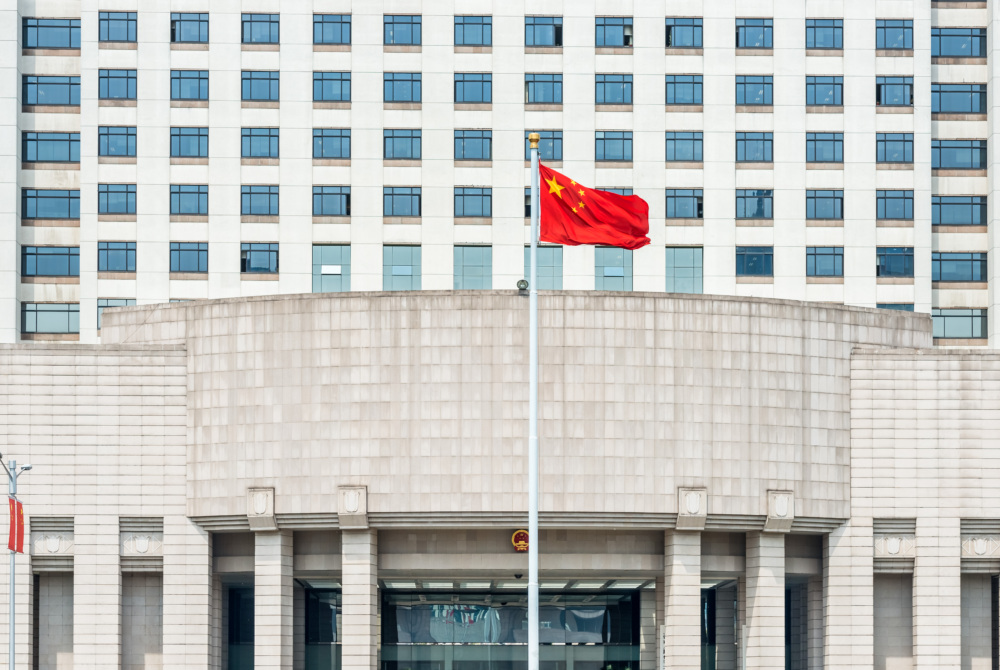This post was written by Margaret Miller, an intern with
NTI’s Global Nuclear Policy
Program. Miller graduated from the College of William & Mary –
University of St Andrews Joint Degree Programme.
Nuclear weapons affect almost every critical foreign policy problem
today, including deteriorating arms control regimes, nonproliferation
challenges in Iran and North Korea, and strategic competition around the world.
Yet, according to Thomas Countryman of the Arms Control Association, “fifty years
ago, we had a stronger national discussion about nuclear weapons” than today.
Countryman was introducing a panel of nuclear policy experts,
convened by the Arms Control Association and hosted by the Carnegie Endowment
for International Peace, titled, “A Critical Evaluation of the Trump
Administration’s Nuclear Weapons Policies.” The July 29 panel was chaired by
Lara Seligman, Pentagon correspondent at Foreign Policy and included:
- Corey Hinderstein,
Nuclear Threat Initiative’s Vice President for International Fuel Cycle
Strategies
- Lieutenant General (ret.) Frank Klotz, former
administrator for the National Nuclear Security Administration and former
commander of Air Force Global Strike Command
- Kingston Reif, Director for Disarmament and
Threat Reduction Policy at the Arms Control Association
Experts Agree: Extend New START
Panelists highlighted the timing of the event, just days
before the Intermediate-Range Nuclear Forces (INF) Treaty is due to expire on
August 2. Lt. Gen. Frank Klotz emphasized “the wisdom and urgency of extending
New START” and “urge[d] [Congress] to adopt the House language on New
START.” At this point, the House version
of the National Defense Authorization Act has restricted funding for withdrawal
from New START unless Russia violates the treaty. Klotz also urged the Trump
administration to resume strategic dialogue with Russia because New START’s
2021 expiration will close the last bilateral arms control channel.
Kingston Reif said, “President Trump has mentioned he wants
some sort of grand new arms control deal,” but it is unclear if this approach
is merely a “poison pill” to justify walking away from the New START Treaty. Reif
also questioned what “the U.S. [is] willing to put on the table for a future
agreement,” and raised the possibility that China and Russia might demand
concessions regarding U.S. missile defense programs.
Iran: “There still is something to preserve”
NTI’s Corey Hinderstein
stipulated that “reasonable people can disagree” about whether the Joint
Comprehensive Plan of Action (JCPOA) with Iran was the right deal at the time
of its conclusion because it exclusively covered Iran’s nuclear program.
However, Hinderstein asserted that a benefit of JCPOA, often discussed in
negative terms today, was this “focus on the biggest problem with the nearest-term
consequences.” The deal separated Iran’s nuclear program from other disruptive
regional activities. Subsequent dialogue and negotiations could have addressed
these problems without the threat of Iranian nuclear use.
Hinderstein highlighted that the JCPOA “introduced
predictability and reduced uncertainty … by setting particular timelines and
limits” and “on-the ground verification,” unlike anywhere else in the world.
Despite information that Iran is “on the wrong trajectory” by violating some of
the limits in the JCPOA, Hinderstein emphasized that these steps are reversible
for now. Indeed, she noted that the Joint Commission meeting in Vienna on July
28 “showed there is still something to preserve.” Hinderstein expressed her
desire for a “renewal of diplomatic dialogue,” saying “if this is a door that
is open, we should walk through it.”
Mixed Reviews: Evaluating Trump’s Nuclear Policies
Several panelists highlighted continuity between President
Obama’s and President Trump’s nuclear modernization plans, but they debated the
wisdom of new low-yield weapons. Lara Seligman noted that this administration
seems to have increased its focus on the need to “deter and match” Russia and
China, including procuring new low-yield nuclear weapons. Reif argued that “the
belief that a nuclear conflict can be controlled” by using non-strategic
nuclear weapons “is dangerous thinking,” in part because “the fog of war is
thick.” Klotz disagreed and argued in favor of the modernization plans, quoting
Reagan: “The only value in our two nations possessing nuclear weapons is to
make sure they will never be used.”
Hinderstein noted that “too often, we speak about Iran and
North Korea in isolation,” rather than linked to broader international
challenges. She gave the Trump administration’s DPRK policy “an
incomplete…report card,” and acknowledges the US approach “did need a big
change.” Various pundits and North Korea watchers criticized Trump’s engagement
with Kim Jong Un, but Hinderstein agreed that “the top down approach is the
absolute only way that you’ll get anything done,” with North Korea.
However, this approach requires North Korea engagement and
so far, U.S. “teams of experts … just don’t have counterparts on the other
side.” Looking forward, “we need to be realistic” about DPRK advances, and
Hinderstein said, “we can’t hold North Korea to a commitment that doesn’t
exist.” In conclusion, Hinderstein noted that NTI and the State Department have
been “making actual progress on developing and defining verification measures”
with 25 countries through The International Partnership for Nuclear
Disarmament Verification (IPNDV).
A transcript of the event is available here.




